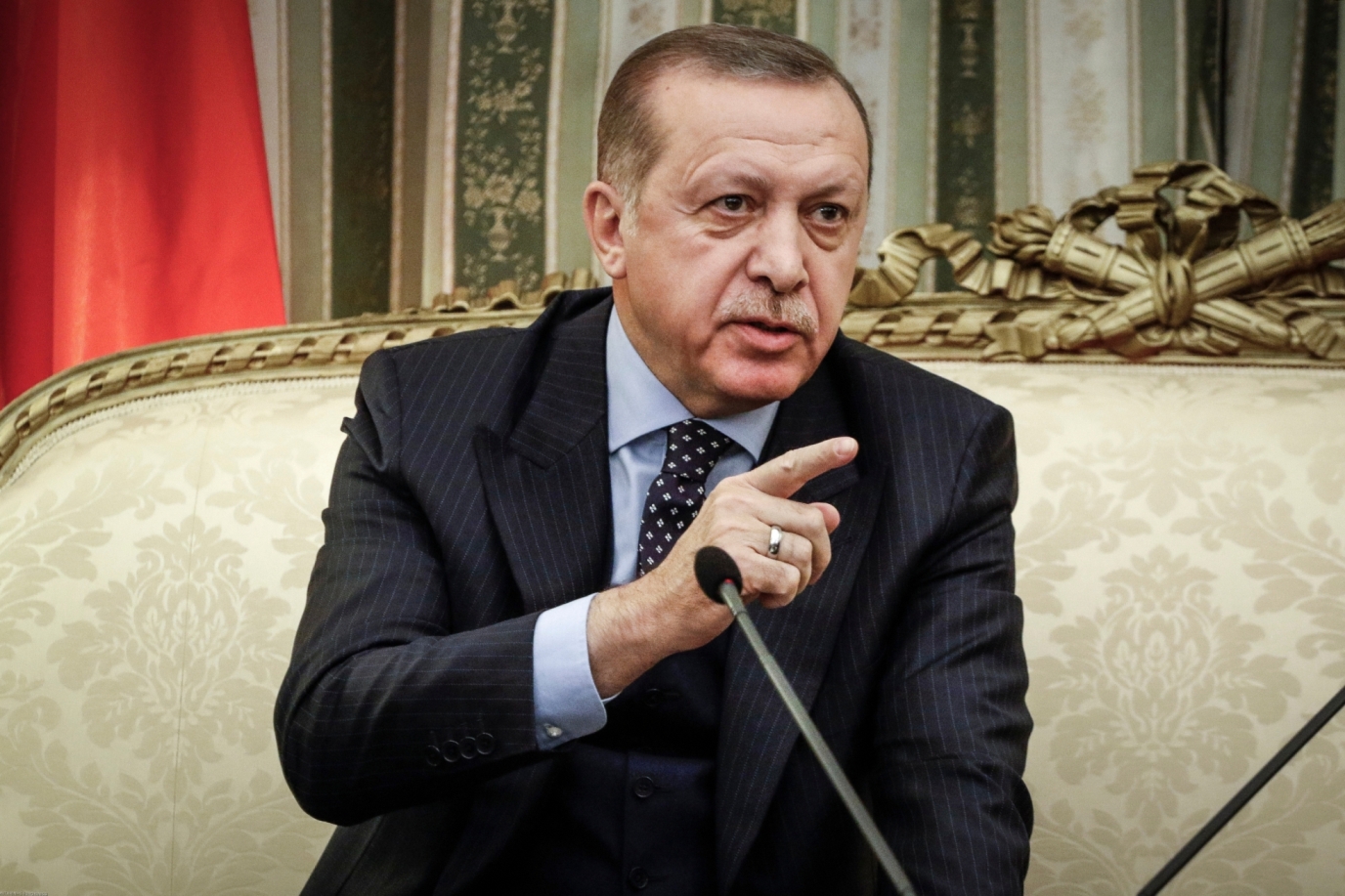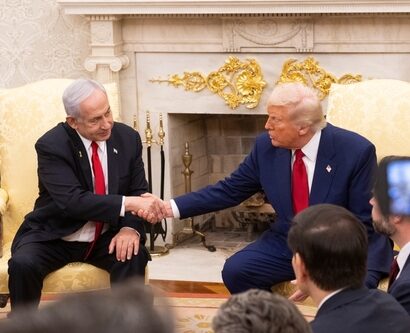Abstract: Turkey’s President Recep Tayyip Erdogan visited Saudi Arabia to meet King Salman and Crown Prince Mohammed bin Salman on April 28, at first in 5 years. The visit was highly anticipated as both parties tried to bridge the gap in their relations and move ahead. There have been tensions in Turkish-Saudi Arabian relations for a long time. However, it worsened after the 2018 murder of journalist Jamal Khashoggi in the Saudi Arabian consulate in Istanbul. Anyhow, Turkey has been trying to improve its ties with other countries in the region in recent times. Over the past few years, Turkish leaders worked on steadying relations with regional partners, with the recent normalization of ties with Egypt and UAE and, most significantly, with Israel. Hence, the recent visit to Saudi Arabia improves the relationship by bridging the gaps and moving ahead. President Erdogan’s visit is followed by the Crown Prince’s visit to Turkey in his upcoming international tour. The Turkey-Saudi Arabia meeting is a game-changer as both countries have mutual interests in improving ties. Nonetheless, it is too soon to state that the relations would have impactful improvements with the visit.
Problem statement: How to assess President Recep Tayyip Erdogan’s recent visit to Saudi Arabia to meet King Salman and Crown Prince Mohammed bin Salman to mend the Turkey-Saudi Arabia ties?
Bottom-line-up-front: Although the meeting is the first step towards the normalization of ties, one should not expect something very concrete to come out of this visit as Saudi Arabia still has trust issues regarding Turkey. Moreover, President Erdogan’s policies are not something to rely upon as they have mainly varied from the traditional policies of the Gulf Cooperation Countries, mainly after the Arab Spring uprising.
So what?: Turkey has taken the first step, and the Crown Prince’s visit is reciprocating this to Turkey soon. In the long run, for Ankara to earn the trust of the Saud Arabia leadership, it needs to make several foreign policy amendments. It must first begin with the normalization of ties with countries in the region, followed by an understanding of the regional and international issues and the majority stance taken by the countries in the Middle East. Finally, both Saudi Arabia and Turkey must work on building ties with those who can assist Turkey’s situation at this time. These steps will ensure that Turkey is not at odds with significant stakeholders in the region on sensitive issues. After all, Turkey is currently at the receiving end of the bargain.

Source: shutterstock.com/Ververidis Vasilis
Isolation in the Middle East
Several policies by President Recep Tayyip Erdogan saw Turkey getting isolated in the Middle East. Nonetheless, Turkey is now trying to renew its focus on improving its ties with several countries in the region. The recent development was the improvement of relations with Egypt and the United Arab Emirates (UAE) and the normalization of relations with Israel under the Abraham Accord 2020. Turkey needed to improve its ties with one of the key players in the region – Saudi Arabia. Saudi Arabia wields significant influence in the area due to its vast oil reserves and is known to provide crucial financial and political support to its allies from time to time. Hence, Turkey’s President Recep Tayyip Erdogan visited Saudi Arabia to meet King Salman and Crown Prince Mohammed bin Salman on April 28, 2022. The visit by President Erdogan was the first such visit in five years, and the primary objective was to restore the relationship between Turkey-Saudi Arabia.
Trouble in the Turkey-Saudi Arabia Relations
Turkey-Saudi relations have been fragile for a long time[1]. The relations, however, took a nosedive after the 2018 murder of Jamal Khashoggi, a Washington Post and Middle East Eye columnist, inside the Saudi Arabia consulate in Istanbul. The murder attracted the attention of the international media, and there was an outcry from the global community. Ankara was also a sharp critic of the incident, with President Erdogan claiming that the murder was sanctioned by high-level officials, with the possible involvement of Crown Prince Mohammed bin Salman[2]. Later on, the USA, via the CIA, approved that Crown Prince Mohammed bin Salman was indeed involved in the murder of the journalist[3]. After all, Jamal Khashoggi was an insider to the Saudi royal family who was later inspired by the Arab Spring uprisings aimed at democratic governance in the Middle East. It eventually encouraged Jamal Khashoggi to a self-imposed exile in Washington as he wrote against the policies of the Saudi Arabia government and criticized the decisions taken by the Saudi royal family by publishing them on international media[4]. All these actions culminated in tarnishing the reputation of the Crown Prince in the international forum, and it became the driving force for the Crown Prince to order the assassination of Jamal Khashoggi. It was an event harshly criticized by President Erdogan, which further fuelled the controversy. It was met with sharp retaliation from Saudi Arabia, which put pressure on Turkey’s economy through an unofficial boycott of Turkish imports that hurt the economy.
The USA, via the CIA, approved that Crown Prince Mohammed bin Salman was indeed involved in the murder of the journalist.
Turkey’s Interests in the Visit
Apart from that, Turkey is currently experiencing an inflation rate of more than 60 percent[5]. The Turkish lira also plummeted to its lowest in recent times due to the economic policies adopted by President Erdogan[6]. The situation has further worsened by the Russia-Ukraine crisis that is taking place in its neighborhood. The problem has created an energy crisis in Turkey as it imports about 50 percent of its need from Russia[7]. The visit comes when the country is at the helm of an economic crisis and an upcoming election. With the visit, President Erdogan aims to achieve several objectives:
First, President Erdogan was able to negotiate the Comprehensive Economic Partnership Agreement (CEPA) when he negotiated during his visit to UAE in February[8]. Before his visit, a $10 billion fund to support investments in Turkey was also announced by the UAE’s Crown Prince Sheikh Mohammed bin Zayed when he visited Turkey in November[9]. Hence, President Erdogan intends to secure such investments and bilateral trade agreements during his visit to Saudi Arabia.
Before his visit, a $10 billion fund to support investments in Turkey was also announced by the UAE’s Crown Prince Sheikh Mohammed bin Zayed when he visited Turkey in November.
Second, President Erdogan secured a $4.9 billion currency swap agreement with the UAE to boost its depleting foreign-exchange reserves caused by its financial turmoil[10]. Turkey is also involved in a similar currency swap agreement with China, Qatar, and South Korea, worth $23 billion[11]. Hence, he intends to secure a deal with Saudi Arabia that would reduce the economic burden on the country.
Finally, he intends to request Saudi Arabia to lift the unofficial boycott of Turkey. Since the beginning of the controversy over the murder of Jamal Khashoggi, Saudi Arabia has encouraged its citizens to avoid consuming Turkish products. As a result, Turkish imports fell 98 percent in January 2020. As per Saudi Arabia’s General Authority for Statistics, the overall import value fell from 622 million riyals to 14.1 million riyals ($3.76 million)[12]. Besides banning the products, Saudi Arabia also encouraged its citizens not to visit Turkey to reduce tourism revenue[13]. Hence, the visit by President Erdogan is to initiate bilateral economic and trade relations primarily with Saudi Arabia.
Thus, the reasons mentioned above are why President Erdogan’s visit to Saudi Arabia is such a significant development in the Middle East. After all, Saudi Arabia is the only country in the Middle East that can provide financial support to Turkey to assist its economic situation. To add to that, showing the monetary aid to Turkey will encourage other countries in financial investments and increase the economy and trade significantly. Accompany that will be the political support of Saudi Arabia to Turkey. As an influential country in the region, Saudia’s political support would have a domino effect that will eventually increase the political support to Turkey from several other countries in the Middle East and ultimately reduce the ‘isolation’ that Turkey has been feeling due to its policies in the past. Hence, to underscore its commitment to amending the Saudi-Turkey relations, Turkey extended its hand for cooperation by accepting Saudi Arabia’s request to transfer Jamal Khashoggi’s trial to Saudi Arabia. These developments took place before President Erdogan visited Saudi Arabia. Despite that, not just Turkey but Saudi Arabia is also expected to gain from the visit.
Saudi Arabia’s Interests in the Visit
There are several ongoing regional conflicts in Libya, Lebanon, Syria, and Yemen, where Saudi Arabia and Turkey are at odds. Hence, it is anticipated that both countries would find mutual grounds to increase their cooperation in the Middle East. Moreover, the Middle East allies of the USA, especially the UAE and Saudi Arabia, have had strained relations with the Biden administration due to its Middle East policies[14]. These policies pertain to the revival of the Iran nuclear deal and the USA’s withdrawal from the Yemen war[15]. To add to that, the USA did not provide the legal immunity for Crown Prince Mohammed against the lawsuits over the murder of Saudi journalists Jamal Khashoggi, among many others.
The Middle East allies of the USA, especially the UAE and Saudi Arabia, have had strained relations with the Biden administration due to its Middle East policies.
Be that it may, the recent events of Ukraine and Afghanistan have showcased that it is essential to be self-reliant and not be wholly relied on by the USA for security and defense. At this stage, Turkey does come to the rescue of Saudi Arabia regarding negotiations to deal with Iran and assist the kingdom in the Yemeni war, as despite being a Sunni country, Turkey has close relations with Iran[16]. Hence, Saudi Arabia can seek better cooperation with Turkey to counter Iran in the various proxy wars and address the rising threat of Iran’s nuclear program. This way, by imitating Turkey to negotiate with Iran, Saudi Arabia can provide all the necessary financial and political support crucial for Turkey in the current situation. After all, Turkey is the one that needs economic and political help, something that is beyond the capabilities of all the countries in the Middle East, especially Iran. However, Saudi Arabia can provide the necessary support to Turkey.
Additionally, Chinese President Xi Jinping is visiting Saudi Arabia in the coming months[17]. The visit would entail several investments and bilateral relations increasing between Saudi Arabia and China. Moreover, Saudi Arabia is building ballistic missiles with assistance from China[18]. Be that as it may, there is a considerable possibility that Saudi Arabia will have to pay a hefty price in case of favors from China. This appears feasible, especially when Saudi Arabia may have to choose sides on international issues. Alternatively, when there is a possibility of a change in the global order post-COVID-19, Saudi Arabia, under pressure from China, might have to side with China, which may have severe repercussions. So, this is where Turkey steps in with its defense production and can bargain for energy security to reduce its reliance on Russian imports.
Results of the Meeting
So, it is safe to state that there are a lot of mutual interests between Turkey and Saudi Arabia. Hence, they have a vast opportunity for cooperation in several sectors. Be that as it may, at this point, celebrating the visit’s success is premature. Turkey, time and again, has voiced its opinion on various developments in the region. Most of the time, the statements have stood against the sentiments of most Middle-East countries. It is true, especially regarding the views expressed by Saudi Arabia and the UAE. The Jamal Khashoggi event still haunts the Saudi Arabia royal family, especially the Crown Prince Mohammed bin Salman as the case blowout was personal to him. Hence, there is still distrust among the Saudi royals regarding Turkey. Therefore, many efforts need to be invested in mending the relations. Both countries need to re-evaluate and restructure their relations towards a positive plan to make up for the lost years. This can further be worked out in the upcoming international tour by Saudi Arabia’s Crown Prince Mohammed bin Salman. He would also be visiting several countries, including Turkey, to discuss regional and international issues and possibly sign agreements on energy and foreign trade issues.
Turkey, time and again, has voiced its opinion on various developments in the region. Most of the time, the statements have stood against the sentiments of most Middle-East countries.
Nonetheless, shortly, it is expected that the relations will be based on varied issues, rather like a partnership of occasional overlapping interests, and not as cumulative cooperation. For instance, Saudi Arabia and Turkey may support each other regarding energy and defense security. However, they may still be at odds regarding Iran and its nuclear program. Also, Saudi Arabia may ease the unofficial boycott on Turkey and encourage economic and trade developments with Turkey. Nevertheless, it would not mean that Turkey and Saudi Arabia would suddenly be on the same side in the Syrian war. In other words, Saudi Arabia- Turkey relations would be based on a case-by-case basis where both sides would negotiate and then come to mutual grounds to further their interests.
Apoorva Iyer completed her Bachelor of Arts degree in Political Science from Delhi University. She has published several articles and research papers on renowned websites and international journals. She has also worked extensively in several think tanks and political and security risk consulting firms. Her interests lie in international relations and security studies.
[1] Meryem Ilayda Atlas, “Saudi Arabia Visit Heralds New Era in Bilateral Ties, Erdoğan Says,” Daily SabahApril 30, 2022, https://www.dailysabah.com/politics/diplomacy/saudi-arabia-visit-heralds-new-era-in-bilateral-ties-erdogan-says.
[2] Mersiha Gadzo, “Turkey Slams Saudi Silence over Khashoggi Details,” Al Jazeera, November 3, 2018, https://www.aljazeera.com/news/2018/11/3/erdogan-points-finger-at-saudi-puppet-masters-in-khashoggi-case.
[3] Barbara Plett-Usher, “Jamal Khashoggi: US Says Saudi Prince Approved Khashoggi Killing,” BBC News. BBC, February 26, 2021, https://www.bbc.com/news/world-us-canada-56213528.
[4] “Jamal Khashoggi: From Saudi Royal Insider T Open Critic,” WION, October 19, 2018, https://www.wionews.com/world/khashoggi-from-saudi-royal-insider-to-open-critic-172311.
[5] Daren Butler and Ali Kucukgocmen, “Turkey’s Inflation Surges to 70%, Putting Erdogan in Bind,” Thomson Reuters, May 5, 2022, https://www.reuters.com/world/middle-east/turkeys-inflation-surges-20-year-high-70-april-2022-05-05/.
[6] Ece Toksabay and Jonathan Spicer, “Turkish Lira Plummets to New Low, Dragging Central Bank to the Rescue,” Thomson Reuters, December 13, 2021, https://www.reuters.com/world/middle-east/turkish-lira-hits-new-low-ahead-cenbank-meeting-this-week-2021-12-13/.
[7] John Koutroumpis, “Russia and Turkey: An Ambiguous Energy Partnership,” E-International Relations, September 11, 2019, https://www.e-ir.info/2019/09/11/russia-and-turkey-an-ambiguous-energy-partnership/.
[8] Tuvan Gumrukc, Orhan Coskun, Yousef Saba and Alexander Cornwell, “Turkey, UAE Sign Agreements on Trade, Industry during Erdogan Visit,” Thomson Reuters, February 14, 2022, https://www.reuters.com/world/middle-east/turkeys-erdogan-visits-uae-first-time-decade-2022-02-14/.
[9] Firat Kozok, “UAE Sets Up $10 Billion Fund to Support Turkey as Ties Warm,” Bloomberg, November 24, 2021, https://www.bloomberg.com/news/articles/2021-11-24/uae-turkey-to-sign-financial-cooperation-deals-as-ties-mend.
[10] Onur Ant, “Turkey Signs $5bn Swap Deal with UAE, Boosting Foreign Reserves,” Al Jazeera, January 19, 2022, https://www.aljazeera.com/economy/2022/1/19/turkey-signs-5bn-swap-deal-with-uae-boosting-foreign-reserves.
[11] Orhan Coskun, and Nevzat Devranoglu, “Turkey Seeks Relief with FX Swap Deal by Year-End -Sources,” Thomson Reuters, December 23, 2021, https://www.reuters.com/markets/europe/turkey-seeks-relief-with-fx-swap-deal-by-year-end-sources-2021-12-23/.
[12] “Saudi Arabia Imports from Turkey Hit Fresh Record Low amid Informal Boycott,” The Economic Times, March 25, 2021, https://economictimes.indiatimes.com/news/international/saudi-arabia/saudi-arabia-imports-from-turkey-hit-fresh-record-low-amid-informal-boycott/articleshow/81688692.cms.
[13] Mohammed Alkhereiji, “Saudi Tourists Shun Turkish Destinations as Government Relations Deteriorate,” The Arab Weekly, August 3, 2019, https://thearabweekly.com/saudi-tourists-shun-turkish-destinations-government-relations-deteriorate.
[14] Martin Chulov, “Jamal Khashoggi Killers Living in Luxury Villas in Riyadh, Say Witnesses,” Guardian News and Media, December 30, 2021, https://www.theguardian.com/world/2021/dec/30/jamal-khashoggi-killers-living-in-luxury-villas-in-riyadh-say-witnesses.
[15] Manson, “The US to withdraw support for Yemen war in break with trump,” Financial Times, February 04, 2021, retrieved June 1, 2022, from https://www.ft.com/content/b592364d-080e-4e30-a3dd-5910c0a12146
[16] Hossein Aghaie Joobani, “Under Ebrahim Raisi, Iran and Turkey May Be Entering a New Phase of Bilateral Ties,” Atlantic Council, January 20, 2022, https://www.atlanticcouncil.org/blogs/iransource/under-ebrahim-raisi-iran-and-turkey-may-be-entering-a-new-phase-of-bilateral-ties/.
[17] “Saudi Arabia Invites China President Xi Jinping to Riyadh,” The Siasat Daily, March 16, 2022, https://www.siasat.com/saudi-arabia-invites-chinas-president-xi-jinping-to-riyadh-2291522/.
[18] Courtney Kube and Saphora Smith, “Saudi Arabia Appears to Be Building Its Own Ballistic Missiles with China’s Help,” NBC Universal News Group, December 25, 2021, https://www.nbcnews.com/news/world/saudi-arabia-building-ballistic-missiles-china-iran-rcna9893.





